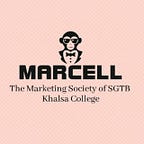Impact of COVID 19 Pandemic on Waste Management
With all waste or pollution…someone somewhere pays for it!!
The COVID 19 pandemic hit the world on such a large scale whether it was on the personal or professional front. Although the cases have fallen down significantly and people are eventually getting back to their routine lives, its effects are still prominently visible. It not only affected the immunity of the people who were its victims but further played a drastic role in increasing the waste as well as pollution levels.
In response to COVID 19, the hospitals, healthcare facilities and even individuals produced more waste than usual, including masks, gloves, gowns and other protective equipment, which was a major reason for the number of single-use plastics being produced. When not managed properly, infected medical waste is subjected to uncontrolled dumping. This further leads to public health risks, open burning or uncontrolled incineration, leading to the release of toxins in the environment and to the secondary transmission of diseases to humans. Other wastes also reach water sources and add to riverine and marine pollution, which further disrupts life below water.
This constant rising waste amount is not only hazardous to the health of all living creatures but also the environment. Hence, it is the need of the hour that the COVID 19 waste be minimized by making the maximum use of available waste management techniques so that the long-term ill impacts on living organisms as well as the surroundings could be reduced. While processing the waste generated till now, it is important to ensure that there are zero or negligible emissions from such processing. One mustn’t rely completely on the government as well as the agencies responsible for the degradation of this waste and at the same time should follow the 3S methodology, i.e., Sorting, Segregation and Storage. In this way, the COVID-19 waste is separated from general medical waste volumes at the time of generation which is then stored to assess waste volumes and further, allows the development of an appropriate response or solution.
Everyone must ideally contribute towards this as it is our duty to conserve the environment and make this world a better, safer and healthier place to live.
“You cannot get through a single day without having an impact on the world around you. What you do makes a difference and you have to decide what kind of a difference you want to make.”
— Jane Goodall
So what steps have you undertaken or plan on undertaking to mend this concern over waste management? Please let us know by leaving a comment.
Thank You.
